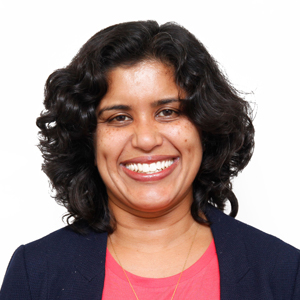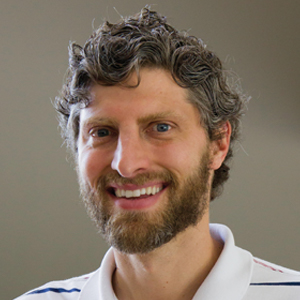Keep 'em separated
Before he became famous as the lead singer for the punk-rock band The Offspring in the mid-1990s, Dexter Holland was just another graduate student toiling away in a laboratory at the University of Southern California. One day, he pulled two five-liter Erlenmeyer flasks full of steaming hot LB broth out of the autoclave and put them in the safety hood to cool down. But the cooling process was taking forever. “They were right next to each other,” remembers Holland. “I thought, ‘These things are never going to cool off. I’ve got to keep ’em separated.’”
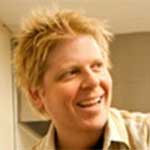
The phrase struck Holland. “I thought that was a funny line,” he recalls of what would become the signature hook for the band’s breakthrough hit, “Come Out and Play.” “It was literally a biology inspiration.”
Finding inspiration from different areas is integral to Holland’s psyche. As a singer, a licensed pilot, and a certified hot-sauce maker, Holland is continually finding new creative outlets for his seemingly boundless energy. “I like making things happen,” he explains. “I like to do a lot of stuff.” Next up on his list: to finish that Ph.D. in virology he started two decades ago. “It’s been a long road,” admits Holland.
A native of southern California, Holland formed The Offspring with Greg Kriesel, Ron Welty and Kevin “Noodles” Wasserman in high school. As the band struggled to make it big in the early 1990s, Holland started a Ph.D. at USC and got as far as passing his oral qualifying exams. But in 1994, The Offspring’s third album, “Smash,” exploded onto the charts, soaring to No. 4 on the U.S. Billboard 200 and catapulting the band into superstardom.
At that point, it was clear to Holland what he needed to do – he had to put his academic pursuits on hold. Others were not as sure. One of his thesis advisers, completely befuddled as to why Holland wanted to take a leave of absence from graduate school, suggested Holland take time out from the band instead. “This is when we were on MTV!” says an incredulous Holland. His parents were equally confounded. “You have this great opportunity of getting a grad degree, and you’re throwing it away to go play in a punk rock band?” Holland remembers them saying. “I think they secretly hoped it was a phase.”
In a way, they were right. After 20 years of touring and recording with The Offspring, Holland’s focus has finally come back to his Ph.D. “If I don’t do it now,” Holland says, “I’m not going to do it 10 years from now.” Working with Suraiya Rasheed at USC, Holland is studying the roles of microRNA sequences in influencing the virus’ infectivity. “I’m not predicting necessarily making (science) a career,” says Holland. “But I did want to finish something that I started.”
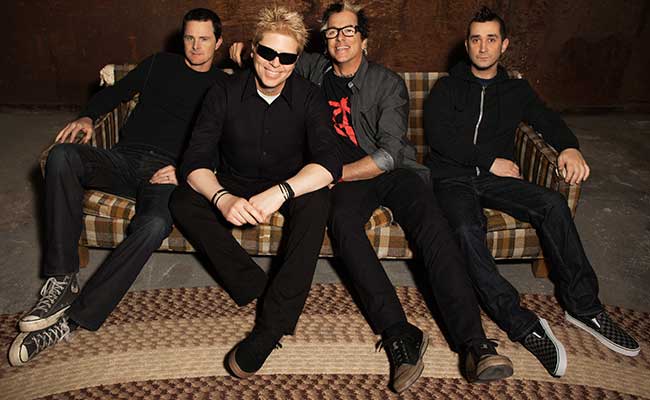
Thankfully for Holland, his music career is going pretty well. “Smash” has sold more than 6 million copies in the U.S. and more than 12 million copies globally, qualifying it as the best-selling independent-label album to date. More platinum-selling albums have followed, establishing The Offspring as one of the most successful bands in music history. “I’ve been very fortunate to be able to pluck an electric guitar for a living,” acknowledges Holland. The band continues to be active, and Holland spent this summer touring with his bandmates around North America and Europe.
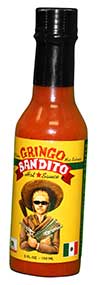
The band’s long-lasting success has afforded Holland the freedom to indulge his passions and explore a variety of distinct pursuits. Hot sauce is a case in point. As someone hailing from southern California, Holland is well acquainted with what makes a good hot sauce and wanted to cook up his own. “I thought it would be cool, because it sounds funny and sounds fun,” he says. Holland spent two years crafting his sauce, admitting that he took “a little bit of a scientific approach” in perfecting the recipe. Gringo Bandito Hot Sauce is now available for sale in grocery stores in various states and online.
It’s anybody’s guess what Holland might do next. He already devotes some of his time to the Innocence Project, an organization that works to exonerate wrongfully convicted prisoners through DNA testing. In this regard, having a Ph.D. at the end of his name adds “a legitimacy” that could help people listen to what he has to say about his favorite charity. After that? “Maybe Bono will give me a call, and I can help him fight AIDS in Africa,” he jokes.
Enjoy reading ASBMB Today?
Become a member to receive the print edition four times a year and the digital edition monthly.
Learn moreGet the latest from ASBMB Today
Enter your email address, and we’ll send you a weekly email with recent articles, interviews and more.
Latest in People
People highlights or most popular articles

Survival tools for a neurodivergent brain in academia
Working in academia is hard, and being neurodivergent makes it harder. Here are a few tools that may help, from a Ph.D. student with ADHD.

Quieting the static: Building inclusive STEM classrooms
Christin Monroe, an assistant professor of chemistry at Landmark College, offers practical tips to help educators make their classrooms more accessible to neurodivergent scientists.

Hidden strengths of an autistic scientist
Navigating the world of scientific research as an autistic scientist comes with unique challenges —microaggressions, communication hurdles and the constant pressure to conform to social norms, postbaccalaureate student Taylor Stolberg writes.

Richard Silverman to speak at ASBMB 2025
Richard Silverman and Melissa Moore are the featured speakers at the ASBMB annual meeting to be held April 12-15 in Chicago.

Women’s History Month: Educating and inspiring generations
Through early classroom experiences, undergraduate education and advanced research training, women leaders are shaping a more inclusive and supportive scientific community.

ASBMB honors Lawrence Tabak with public service award
He will deliver prerecorded remarks at the 2025 ASBMB Annual Meeting in Chicago.

